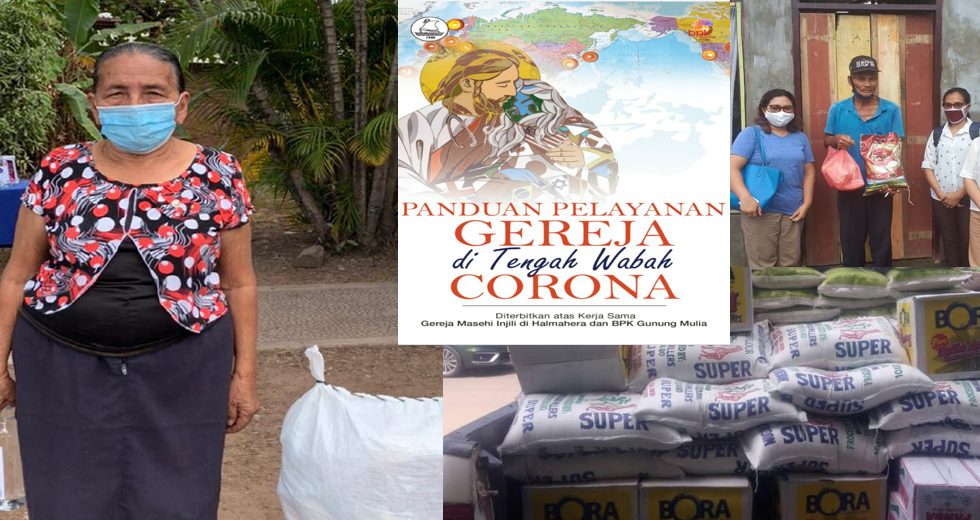Partnership Fund supports churches during pandemic
Posted on February 19, 2021 by Phil Tanis

As the full extent of the COVID-19 pandemic unfolded nearly a year ago, the World Communion of Reformed Churches (WCRC)’s Partnership Fund shifted its focus to providing member churches financial support to deal with the unprecedented crisis.
“Throughout our WCRC family we saw our churches both responding to the realities of COVID and all the social and economic fallout that it brought but also reinvigorating their life and witness in response to the imperatives of the Accra Confession and the call for an economy of life,” said Chris Ferguson, WCRC general secretary. “The actions ranged from the pastoral to the humanitarian to the prophetic, all in deep resonance with the WCRC strategic vision as a global koinonia, confessing the God of Life in a world fallen among thieves.”
The Partnership Fund usually provides small grants to member churches and endorsed organizations to implement impactful, mission-related projects important to the life of a church and its surrounding community, particularly in the Global South. The Fund also strengthens the ties of member churches to the WCRC, as well as meet strategic objectives of both the member church and the Communion as a whole.
Besides the refocus in priorities, the WCRC also bolstered the amount of money available by shifting programmatic monies to the Partnership Fund, including to its emergency fund.
Emergency grants were provided throughout the year, while regular projects applications were awarded in November. Through 2020, the Partnership Fund provided over €200,000 in both emergency and regular project grants to more than 30 member churches.
In 2021, the Partnership Fund will continue to provide emergency assistance throughout the year, while the applications for regular projects are being invited from member churches through 2 April, with money to be granted by June.

The Reformed Partnership Fund is supported by grants from the Waldensian Church’s Otto per Mille fund and the Church of Westphalia (Germany).
Here are a few examples of how member churches utilized Partnership Fund grants in 2020:
The Evangelical Christian Church in Halmahera (GMIH), Indonesia
The pandemic brought economic hardships not only to the GMIH but to North Maluku, where the church serves. While tending to its ministers and church workers, the church also reached out to the most vulnerable in its communities.
A Guide for Church Service in the Midst of the COVID-19 Pandemic was published to provide assistance to continuing ministry during the pandemic. It was distributed to all 453 GMIH congregations, despite logistical issues due to pandemic lockdowns. As suffering increased economic hardships due to the lockdowns, the GMIH also distributed foodstuffs to church workers and food aid to vulnerable families.
“From this program a very high sense of solidarity was created in the community during the pandemic, as an evidence that up to now there is very high concern among communities regardless of religion, ethnicity, race and culture. Helping each other in need thus creates a good sense of solidarity,” the GMIH noted in their report.
Presbyterian Church in Rwanda
Working with the government, the church distributed food to poor, elderly, and disabled people affected by the crisis. In addition, the church transmitted messages on how to limit the spread of COVID-19 through enhanced hygiene on Rwanda Television and other digital media.
Church President Pascal Bataringaya called on all members to particularly remember elderly and poor people and share what they have during the fight against COVID-19, saying, “Help doesn’t necessitate possession of surplus or to have plentifully; rather, it requires a heart full of love of people of God. Let us keep that heart in these critical times and preach through our kindheartedness. Even though the temples made of stones and bricks are closed, our hearts which are the real temples are open. Therefore, we have to work for the Lord, to state publicly his love as much as we can be outstanding in the promise that God is with us in whichever situation.”
Christian Reformed Church of Honduras
On top of the impact of the pandemic, Hondurans were hit by two severe hurricanes: Eta and Iota. The church coordinated a rapid response with ten of its congregations, providing food rations and hygiene supplies to meet immediate needs due to severe damage and loss of homes and belongings due to heavy rains and floods.
More than 1100 people benefited from the aid. The Church of Honduras and direct beneficiaries “greatly thanks the WCRC for supporting this food response project that undoubtedly helped to improve the living conditions of some of the most vulnerable and affected households after Eta and Iota storms. We thank you for your spiritual and economic support.”
The Presbyterian Church of South Sudan (PCOSS)
Through its relief and humanitarian arm, the Presbyterian Relief and Development Agency (PRDA), PCOSS distributed food and other items to those suffering from the economic downturn brought on by the pandemic. Its main project, however, was an awareness campaign to educate people about heightened hygiene against the coronavirus.
During its four-week campaign, more than 1000 people were directly reached in four targeted locations. This is “bound to increase as the Hygiene Promoters that have been engaged shall continue to interact with the members of the community to spread the messages on hygiene and support the Community psychosocial care and COVID-19 infection prevention beyond the specified project life,” reported the PRDA.
 World Communion of Reformed Churches
World Communion of Reformed Churches